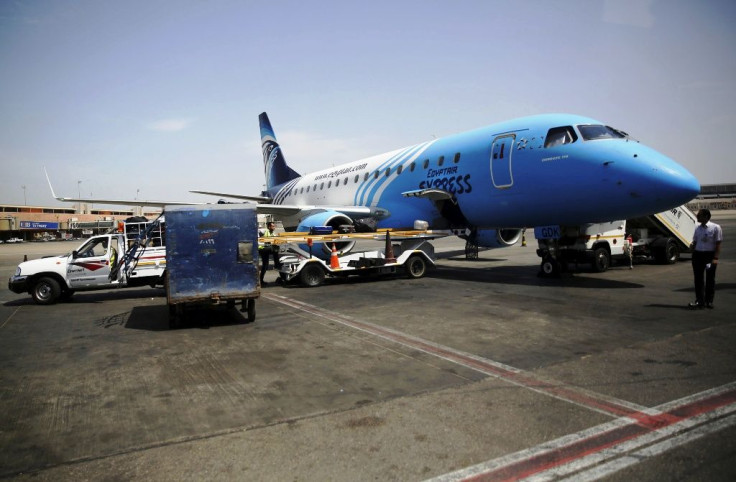EgyptAir Flight 804 Investigation: Officials Looking Into Stops Airbus A320 Made Before Crash

Investigators probing the EgyptAir Flight 804 crash are looking into the last few stops the plane made to establish if they were connected to its tragic end as it crashed into the Mediterranean Sea on Thursday, the Wall Street Journal reported Sunday. Authorities have not excluded any possibilities for the cause of the crash of the Airbus A320 that was carrying 66 people to Cairo after taking off from Paris.
During the plane's journey through the Middle East, Africa and Europe in the days preceding the crash, the aircraft flew to four different airports — Brussels, Asmara, Tunis and Paris — from its base in Cairo, and back. Investigators are looking into any weak links in security at those airports, officials said, according to the Journal. The report added that Brussels, Tunis, Paris and Cairo airports had heightened terror-related checks at the time because of recent attacks in those countries.
The aircraft, which took off from Charles de Gaulle Airport in Paris on May 19, disappeared from radar shortly after entering Egyptian airspace. It was carrying 56 passengers and 10 crew members. Thirty of the passengers were Egyptian, 15 were French and the remaining were citizens from across the world.
The aircraft flew to Brussels and back on May 17, the Journal reported. Following this, the flight made a round-trip to the Eritrean capital, Asmara, in East Africa. A day later, it travelled in and out of the Tunisian capital, Tunis, before heading to Charles de Gaulle Airport in Paris from where it started its fateful journey to Cairo, the report said, adding that the routine maintenance at even brief stops could provide clues about any possible mechanical error.
According to an advisory published by the U.S. State Department last May, security at Asmara International Airport “can be unpredictable.” It also noted a “lack of efficiency and consistency” in the screening of travelers, the New York Times reported last Thursday.
A senior Egyptian official said workers at Cairo airport who came into contact with the plane before it disappeared are being investigated as part of standard procedure, the Journal reported.
On Sunday, Egypt sent a submarine to join the search for the flight recorders from the EgyptAir plane. A submarine belonging to the country’s Oil Ministry left for the crash site about 180 miles north of the Egyptian port of Alexandria to join the search, Egyptian President Abdel Fattah el Sisi said, according to the Associated Press. The submarine can operate at a depth of 3,000 meters (9,800 feet), the AP reported citing Sisi, who noted it “will take time” to determine what happened on the flight.
“It is very, very important to us to establish the circumstances that led to the crash of that aircraft,” Sisi reportedly said on Egyptian TV. “There is not one scenario that we can exclusively subscribe to. ... All scenarios are possible.”
Ships and planes from Cyprus, France, Greece, the United Kingdom and the U.S. have joined the search for debris from the aircraft, including its black box and cockpit voice recorder. The Egyptian military had found wreckage of the plane, human remains and personal belongings earlier.
Meanwhile, Yehia Rashed, Egypt’s tourism minister said Sunday that the crash of Flight 804 will not affect government plans to attract millions of visitors in 2017. The ministry is aiming for 10 million tourists next year, Rashed said, who will contribute $12 billion in revenue, according to Bloomberg. Furthermore, the North African nation will not reduce prices for tourists because the country already offers “good value.”
“Nothing has changed in my view,” Rashed said. “We’re going to work hard, we’re going to set high targets and we’re going to do everything we can do to maximize tourism revenues.”
© Copyright IBTimes 2025. All rights reserved.






















